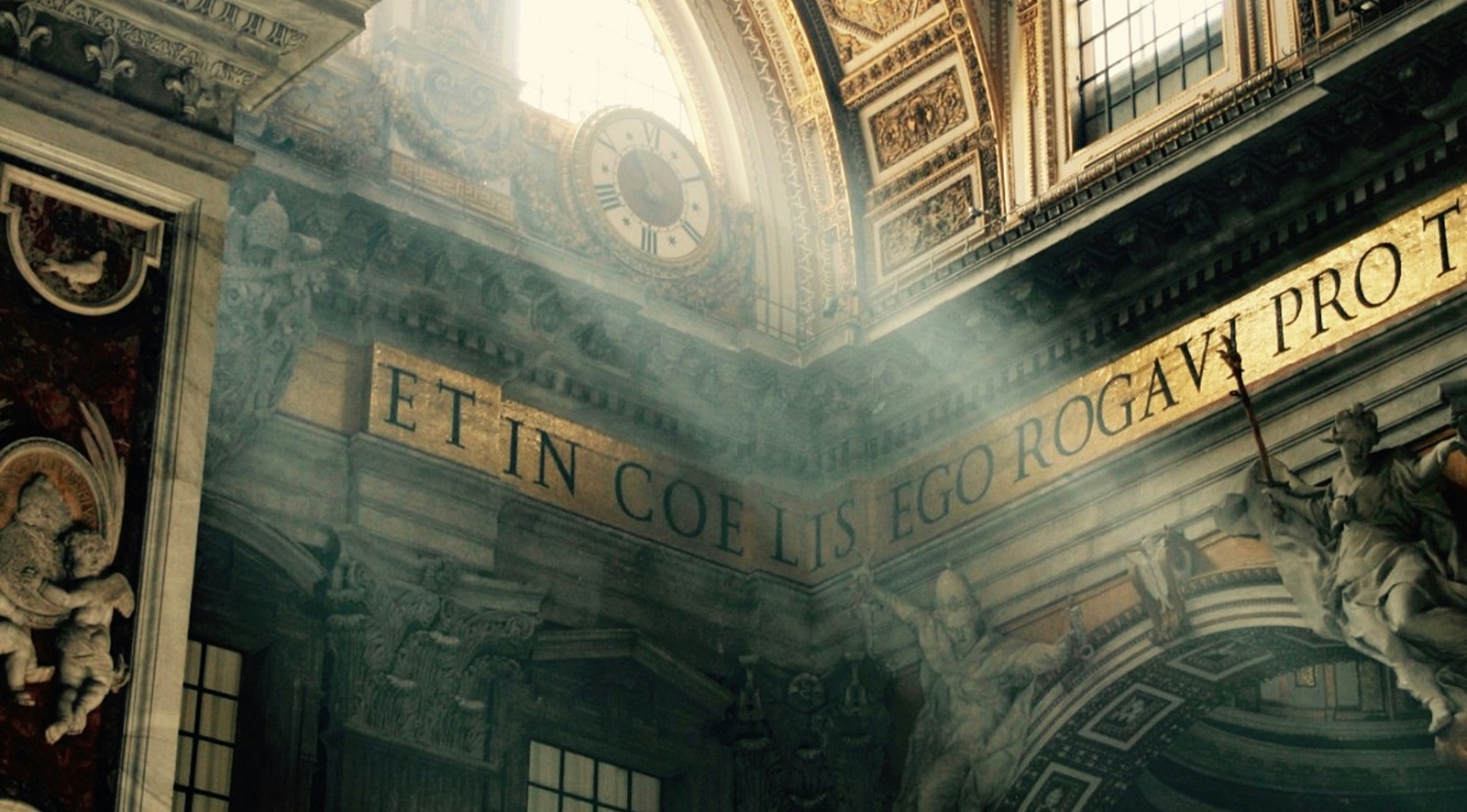Praying to God is tricky business. It’s obviously very important to pray—how else can our relationship with God grow and become more intimate? How else can we love God if we never talk to him? Prayer is a loving conversation. More simply, it is a loving gaze at God our Creator, Redeemer, and Friend. And yet, prayer is tricky business. Not only is God invisible to our eyes, he is also infinitely better than we are.
First, God is invisible. We know by faith that he made us and is completely present to us, but our senses lack any sign of this presence. God seems distant. And so it happens that as we utter our prayers, we can forget that there is someone on the other side listening. Instead, it feels as if we are alone.
And then, even if we overcome the first obstacle of God’s apparent absence, a second one confounds us: God is incomparably better than us. We should come before him and talk to him with the boldness that belongs between father and child, or even friends. But we are in so many ways small, weak, and fallen. He on the other hand is perfect and blameless. It’s hard not to let our shame reduce us to silence.
With these problems in mind, what can we do? One option is despair: we could give up any hope of ever praying well. We could give up any hope of ever being friends with God.
There’s another option. Now, for context, let’s note that it wasn’t our idea that we could be friends with God. It’s God’s idea, God’s initiative! God made the first offer of friendship. He wants us to spend time with him as a friend and to speak to him.
And, having created us, he is well aware of the problems mentioned above. So God gave us the Psalms, one of the most important and basic ways he guides us in our prayer to him:
We first simply have to set out in the daunting task of prayer. So we open our mouths and beg:
Lord, hear my prayer; let my cry come to you. (102:2)
Admittedly we have trouble seeing him:
Do not hide your face from me. (143:7)
We feel as though we are in the dark. However:
Darkness is not dark for you, and night shines as the day. (139:12)
Yes, we are in the dark, but that doesn’t mean that God is not there or that he is not listening:
Behind and before you encircle me and rest your hand upon me. (139:5)
God it was who made us after all:
You formed my inmost being; you knit me in my mother’s womb. (139:13)
So then having reminded us of his presence, God directs our eyes upward as we pray:
You are clothed with majesty and splendor, robed in light as with a cloak. (104:2-3)
And we marvel at his greatness:
The mountains melt like wax before the Lord, before the Lord of all the earth. (97:5)
This God we are praying to is very great! And yet, for some reason, he cares for us:
What is man that you are mindful of him, and a son of man that you care for him? (8:5)
This is amazing, considering how great he is and insignificant we are. But God does care:
The Lord is on high, but cares for the lowly. (138:6)
But we might now feel ashamed in his presence—our heart is unclean and our spirit ailing. But we pray:
A clean heart create for me, God; renew within me a steadfast spirit. (51:12)
We beg his mercy:
Have mercy on me, God, in accord with your merciful love. (51:3)
With our contrite heart, he will have mercy on us, and bring us peace:
Lord, my heart is not proud; nor are my eyes haughty . . . Rather, I have stilled my soul, Like a weaned child to its mother, weaned is my soul. (131:1-2)
And so when all is said and done, we can abandon ourselves to God:
Into your hands I commend my spirit; you will redeem me, Lord, God of truth. (31:6)
✠
Photo by Chad Greiter on Unsplash







